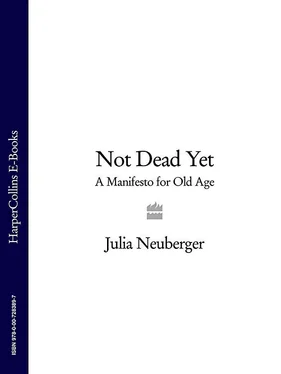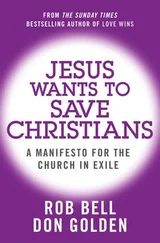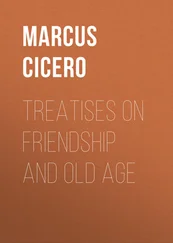There is a range of obvious exceptions to start with. Older prisoners, older people who cannot get on with their families or neighbours, and older people who abuse vulnerable people, often their equally old partners, are not always the easiest to get along with, or even to provide services for. None of those fit the stereotypes. Nor do those older people who choose to live itinerant existences, travelling from place to place, staying only briefly, having no permanent roots and seeming to shy away from any kind of family or social involvement. Then there are those who move away for retirement, perhaps to a long-remembered, much-loved place associated with holidays as a child, despite the warnings of how difficult it is to make real friends as one gets older, and then proceed to lose touch with everyone they knew before, without making strong bonds in their new homes. Perhaps those are entrapping stereotypes too.
The stereotypes are the subtle ones that lead us to regard old age with fear and dread. Denial is a common response, both for people about to attain old age and for those who should be helping to plan services to meet their future needs. So time and again, when financial pressures hit health or social services, it is services for older people, community services, that get cut first. Less dramatic than closing acute wards, less vulnerable to bouts of shroud waving and cries of loss of life, the cuts of services to thousands of older people have a devastating effect. But because they do not feature in the planning, because of our habit of denial of getting old, being old and needing ‘that little bit of help’, those are always the first services to go. As the Guardian journalist Ray Jones put it so forcefully: ‘A spiral of deteriorating performance is … being created, with disabled and older people themselves being trapped in the vortex.’ 1 1 The Guardian (2006), 4 Jan. 2 King’s Fund (2001), Future Imperfect?
But that negativity seems to be shared by older people themselves. Research for the King’s Fund suggested that people find it easier to discuss their wills than to discuss their care requirements with their families. 2 2 King’s Fund (2001), Future Imperfect?
It is the same old fear and denial.
What is this about? Is it to do with our idea that human worth has something to do with economic productivity – and very narrow definitions of productivity too? We need to answer that question seriously as a society, and other questions too:
Do we want to live in a society that does not take old people seriously, when so many older people are saying that at the end of their lives they become meaningless, and then they die?
Do we think it acceptable to disregard people’s wishes about where they want to die?
Do we want to have, as an answer to extreme old age for some at least, euthanasia or assisted dying?
Are we prepared to take on enough of the load of caring for extremely old and disabled people ourselves? Since we will never get any care system fully staffed, nor, probably, be prepared to pay for doing so even if the staff were available, this must be a young people’s issue as well.
Finally, are we ready to make a fuss about how people dying of anything other than cancer are treated?
We need to answer those questions because, if we can’t, the misery will be greater, the anger will increase and we will be unable to do anything about it. That is why I have drafted this book in the form of a manifesto which answers those questions as I believe they must be answered. There will also be stories and care studies to illustrate the present position, plus some examples of what it might be like if things changed and we got the points in the manifesto recognized and acted upon.
I think this is a major political issue of the future, and a question of the kind of society we want to live in. Taken separately, many of the issues raised in the chapters that follow have been said before, but never quite angrily enough. We already have campaigns by the Observer and Mirror about dignity in old age. But they blame the healthcare system, which is simply looking at the symptom. The healthcare system is the way it is because we accept it – because many of us believe that, really, this abuse is OK.
The image of the old crone eking out her existence gathering sticks, bent double in freezing conditions, living in desperately poor housing, has largely disappeared from our consciousness – and so it should have. Yet perhaps it should not have disappeared completely, because we live with a modern version of that cruelty and neglect that may be different, but is just as shocking. The grey power campaign starts here and now.
1The Guardian (2006), 4 Jan.
2King’s Fund (2001), Future Imperfect?
Конец ознакомительного фрагмента.
Текст предоставлен ООО «ЛитРес».
Прочитайте эту книгу целиком, купив полную легальную версию на ЛитРес.
Безопасно оплатить книгу можно банковской картой Visa, MasterCard, Maestro, со счета мобильного телефона, с платежного терминала, в салоне МТС или Связной, через PayPal, WebMoney, Яндекс.Деньги, QIWI Кошелек, бонусными картами или другим удобным Вам способом.












